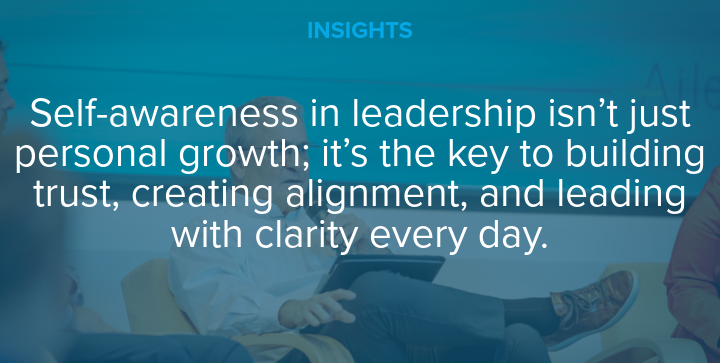For years, Wes Gipe, founder of Agil IT, believed that successful leaders were always strong, always knew what to say, and always had all the answers.
“As a business owner, and particularly one that hadn’t been involved in a lot of other businesses prior to starting my own, I had this picture in my mind about what a leader should be, and it turns out that picture was not at all accurate,” says Wes in this video. (Wes is now a Business Coach at Aileron.)
“I had this view of the captain on the horse…his sword at his side—that was my mental picture of what a leader looked like and was supposed to be,” says Wes.
Because of that perception, Wes never shared his weaknesses with his people. When setbacks occurred, he did his best to make sure they were covered up.
His approach, in part, worked: employees thought he was superhuman at times, he says.
But Wes began to see they were also afraid of him—something he was surprised to learn. “There they were, with their own challenges and failures, and they [were] looking at me, and thinking I [had it] all together,” says Wes.
“As result of that, I missed out on this tremendous opportunity to connect with these people in an authentic way,” he says. “These people that I care so much about, were afraid of me, and I just could not get my head wrapped around it. I could not understand it.”
Are You Showing Vulnerability?
Wes realized that by covering up his own mistakes and failures, he had never shown any vulnerability to his team.
“They believed I was better than they were, and that just couldn’t be further from the truth. I had made every mistake they had made, at least once, and unfortunately, some of them several times.”
The lack of open, candid communication had also shaped the company culture in a way Wes hadn’t intended. “We had plenty of conflict, but we didn’t have very much trust, and so there wasn’t a lot of pursuit of truth. It was more pursuit of individual agendas,” says Wes.
You Can Cultivate Trust for Better Relationships
To cultivate trust for better relationships, Wes took the first step himself, being more open with his team and showing vulnerability.
“When I began to open up, and share the folly along with the wisdom and the mistakes along with the successes, and the failures that I experienced, people began to respond with openness of their own,” he explains.
This is The Key to Authenticity
By showing his people he trusted them enough to share fears, concerns, or setbacks with them, Wes began an evolution of his company’s culture. Team members saw his transparency as strength, and they began to share their own doubts, weaknesses, and challenges with one another. “I was afraid that if I revealed these things that no one would follow me,” says Wes. “What I learned was that the more I revealed, the more they followed.”
Wes says it also encouraged authenticity in the workplace. “What we saw was as people came out of their shells and became themselves, they became willing to just be radically authentic.”
Along the way, teams became more agile and productive, too. “We moved the ball forward so much faster. We got so much more done when people were able just to put themselves out there, focus on the work, and pull together.”
Learn to Leverage Opportunity in Challenging Situations
Like Wes, you want to empower others and build trust with your team. Learn to better handle tough situations (and challenging conversations).




